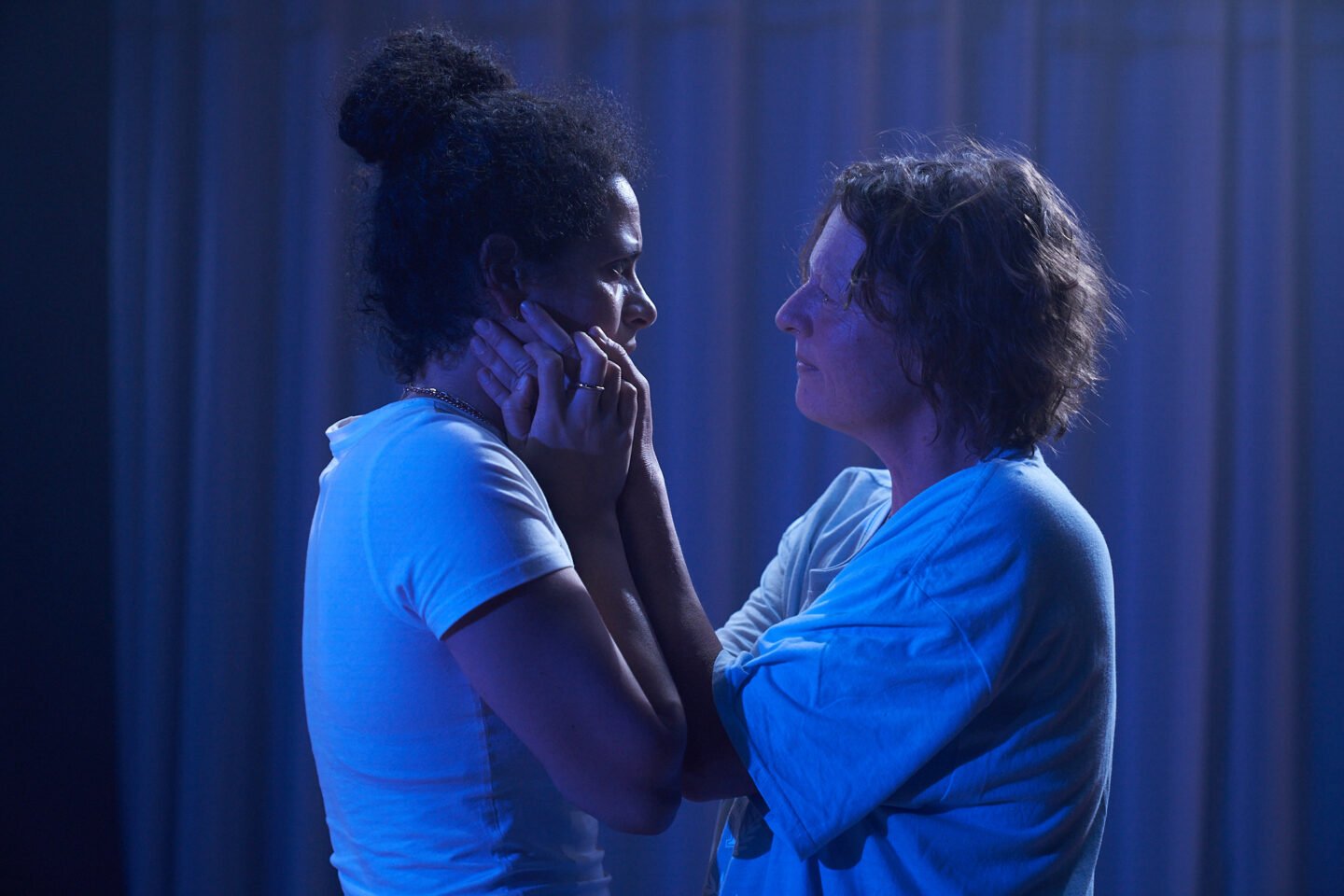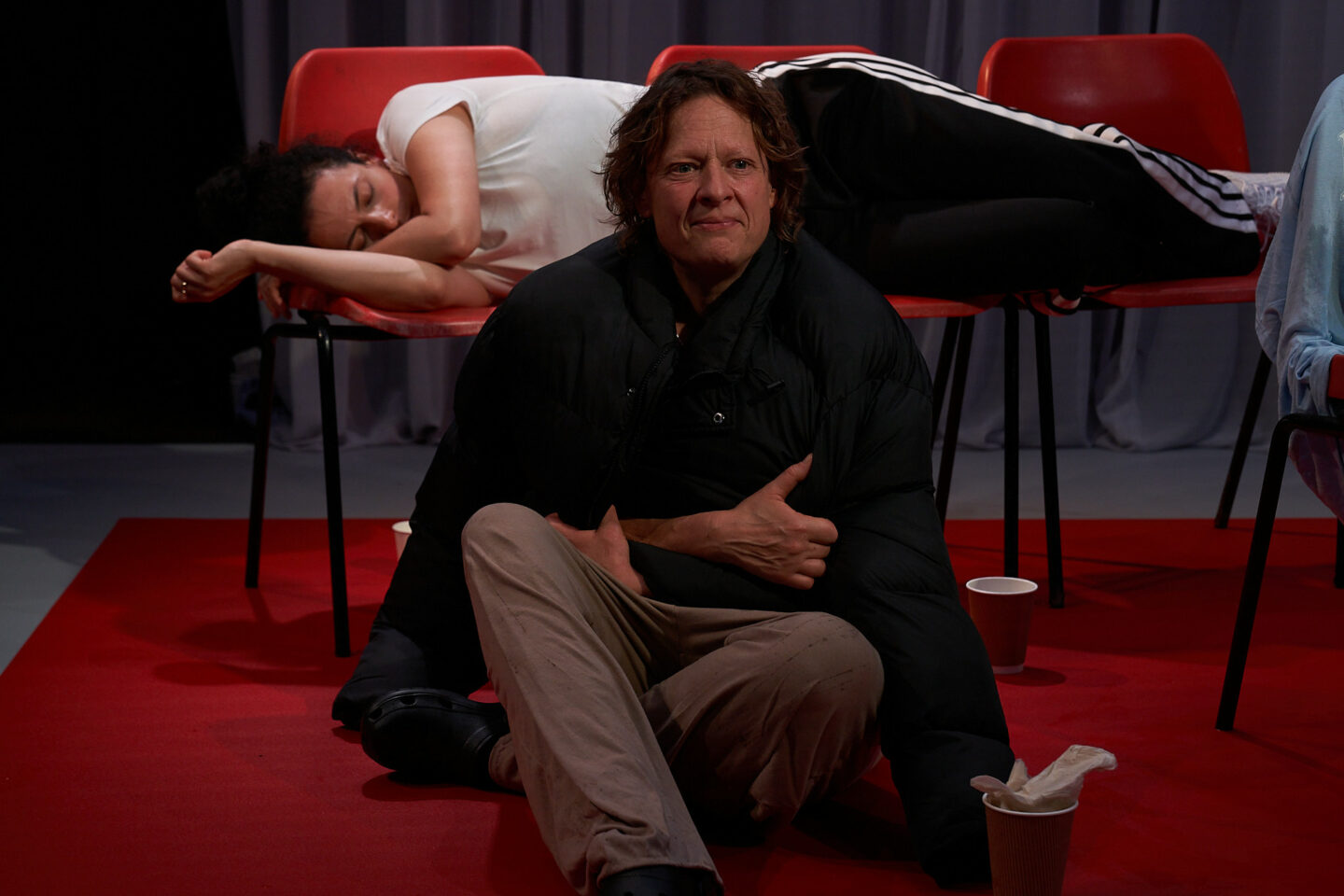Please note that this review of the play includes mentions of childhood disability, death, and suicide.
The representation of queer relationships in media significantly increased in recent years. Sure, we’re still far from getting as much screen or stage time as heteronormative, cisgender love, but we have made serious progress.
These days, we don’t just get superficial, one-dimensional characters and cliched stories between women or queer people. Some narratives – arguably, the best ones – are allowed to be complicated and messy. They capture all of the baggage of a real human relationship. These stories make you think complexly, feel deeply, and leave the theatre at least a little bit transformed compared to when you came in.

The Island, a new theatre production by London’s Cervantes Theatre, is a powerful example. The work of the Spanish playwright Juan Carlos Rubio, The Island tells the story of Ada and Laura, parents of an eleven-year-old boy whose life is put at risk by a severe accident. In the hospital, the women wait to learn about their son’s future – and the fate of their relationship. As they talk, memories emerge, and old wounds reopen, mapping the couple’s fifteen-year journey from love to resentment and back again.
The connection between Ada and Laura is strong but not uncomplicated. Ada (played by Rebecca Crankshaw) was once tender and patient but has grown weary from the challenges of motherhood. Laura (played by Rebecca Banatvala, who we also loved in the bisexual play SAP), fifteen years her junior, presents as tougher and livelier, but with a much shorter fuse and a difficult relationship with her parents and her own queerness.
Both women are flawed and imperfect, in ways that we imagine could once complement and counteract one another. We can easily picture a time when they couldn’t keep their hands off each other, but we also understand that that time is long gone. The chemistry between Laura and Ada is palpable but fraught with pain. Every touch looks and feels familiar but frustrating, such as when Laura hesitantly hands her coat to the freezing Ada – an act of kindness that is immediately weaponised.

Directed by Jessica Lazar (who we also know and love from SAP), the play develops over an hour and a half that feels at once interminable and immediate. If it is at all possible to show what a mother might feel like if her child’s life was about to end, then this production does it perfectly. Under the hostile neon lights of the hospital waiting room, with its terrible coffee and plastic chairs, Ada and Laura tiptoe around the unspeakable, blaming each other, then themselves, then the past, then each other again.
At every stage, the play impossibly takes darker and darker turns. We learn about Ada and Laura’s different ideas of family. We find out that their son is not the son they wanted. We see how alike they are and how desperately they love each other. Finally, we understand that they could not and will not start again, and our heart breaks with theirs.
The Island is a haunting play exploring the edges of what is acceptable in love. It is a deeply challenging story, with all the complexities of human relationships and queer connections.
The Island runs until 21 October at the Cervantes Theatre in London. Get your tickets for this challenging, beautiful play here.
If you do go to see the play, we’d love to hear your thoughts by commenting below,
Team Nonchalant x


